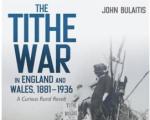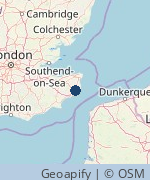The Tithe War, 1881-1936
John Bulaitis
- Regions:
- London, South East, East of England
- Notice Period:
- Regular (more than one month's notice)
- Fee:
- Paid: £50
- Category:
- History
- Updated:
- 4th October 2024
- Tagged:
- 1900S | Conflict | Rural Life | Farming Agricultural
During the 1930s, farming communities waged a campaign of ‘passive resistance’ against Tithe Rentcharge, the modern version of medieval tithe. Farmers refused to pay the charge, disrupted auctions of seized stock and joined demonstrations to prevent action by bailiffs. The ‘tithe war’ was fought outside farms, in the courts, in the press and in the wider arena of public opinion. It posed problems for the Church, legal system, every political party; split the National Farmers’ Union and provided opportunities for the British Union of Fascists and other sections of the extreme right.
Views: 739 | Enquiries: 4About John Bulaitis
I am a historian and author. I taught Modern History for 15 years at Canterbury Christ Church University. Previously I held posts at the University of Suffolk and the University of Essex. I also taught at Queen Mary (University of London), Royal Holloway, Birkbeck College, London South Bank University and the Open University. I have published three books, including my latest book on The Tithe War. I speak regularly at local history societies and community organisations in Kent and beyond. I am a trustee of Brook Rural Museum and Chair of Shepherdswell with Coldred History Society. I am also a member of the Advisory Council of Kent Archaeological Society. You can find more information, including information about my talks at my website: www.johnbulaitis.net
Send a message to the speaker
If you are interested in this talk and wish to contact the speaker, please complete the following form:

